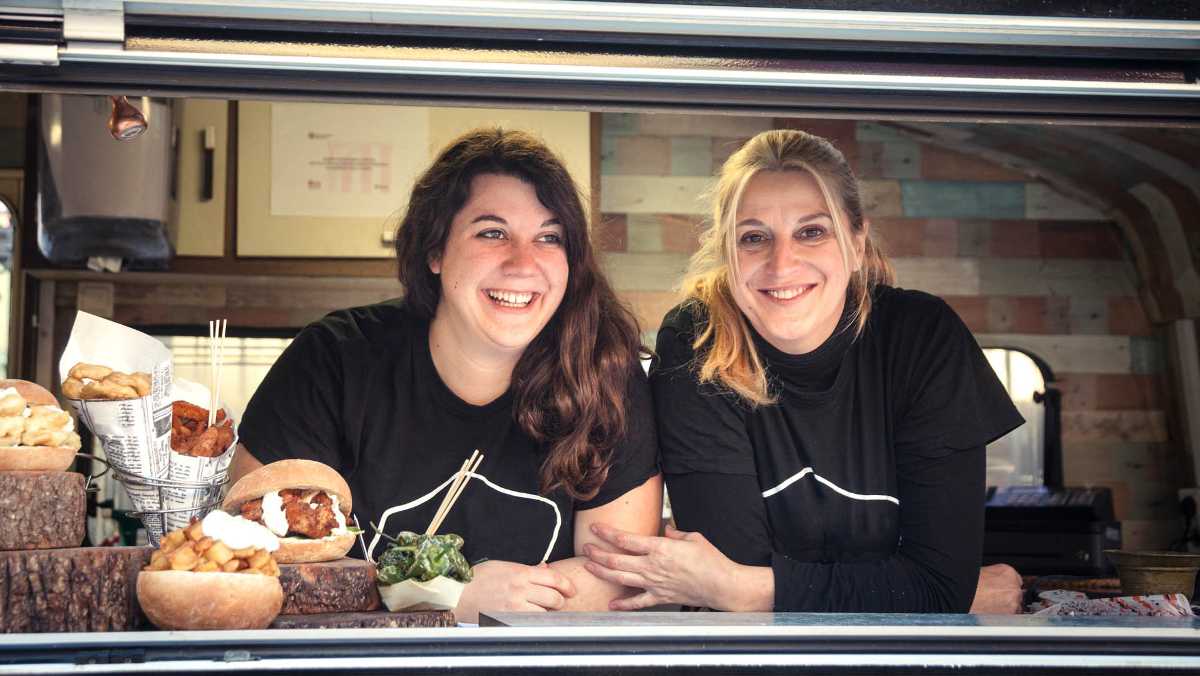Starting a food truck: here is your checklist

- Gerdine Annaars
- The basis
- 6 May 2019
- Edited 4 November 2025
- 4 min
- Starting
Looking to start your own food truck? You will need to make decisions about costs of purchasing and design, permits and HACCP. Andthere are also other rules. Read what you need to look out for when starting your own food truck.
What do you need to do and arrange when starting a business?
Find out with the 'Personal to-do list' on Business.gov.nl. Answer the questions and see the steps that are important in your situation.
The food truck market
Food trucks are extremely popular in the Netherlands. You see them in many kinds of locations. The number of food trucks in the Netherlands has doubled since 2017.
This means that you will be starting out in a market with a lot of competition. So, make sure you stand out with a unique concept. Do market research and think about your marketing plan.
How much does a food truck cost?
The purchase costs of a food truck may vary widely, depending on a variety of factors, including whether you buy a new or a used food truck. Renting is also a good way to test the waters and see whether your product appeals to the public and whether the day-to-day business of running your own food truck suits you.
In addition to the purchase costs of the truck itself, you will be faced with the following expenses:
- Maintenance and inspection
- Fuel
- Storage
- Insurance
- Inventory
- Refrigeration
- Electrical facilities, gas, and water
- Mobile POS terminal
Earning money with your food truck
There are 3 ways to earn money with your own food truck:
- Taking part in a festival or event. Sometimes you will have to pay a fixed fee and a charge for electricity. Visitors usually buy tokens, which you exchange with the organisers for the agreed amount afterwards. In addition, you must usually pay a percentage of your sales to the organisation. Usually, the percentage is between 15% and 25%. At large festivals, this contribution can even reach 40-50%.
- Selling directly to consumers: cash or POS terminal (debit card). If you are using a cash register, you must make sure it complies with the requirements of the Netherlands Tax (Belastingdienst, in Dutch).
- Being contracted by a client. For a wedding, for example. In this case, you can agree on a fixed price in advance or bill your client based on actual costs after the event.
Rules on plastic and containers
The rules for plastic and packaging are changing. Currently, you are not allowed to give out free disposable plastic cups and containers to customers at your food truck. From 1 January 2026, you will no longer be allowed to charge for disposable plastic cups and containers. This rule proved too complicated for businesses. However, you must offer customers a reusable option.
Is your customer eating or drinking something on the spot? Then you are not allowed to use disposable plastic cups and containers.
Safety and insurance
There are risks involved in starting your own food truck. The risk of fire is higher than for many other businesses and you are vulnerable to damage from burglary or storms. Therefore, when starting your business, list the risks. Arrange insurance for the risks whose financial consequences you cannot bear.
You are responsible for the safety of your staff and guests. So, you should have fire extinguishers in the food truck. The fire brigade often comes to check this at events. Make agreements with your employees about working safely and provide protective shoes and work clothing.
Hospitality sector glossary
You will encounter all kinds of words and jargon when starting your food truck. Terms and abbreviations such as Social Hygiene diploma, HACCP, environment plan, and so on. The hospitality sector glossary lists the Dutch and English terms and explains their meaning.
Permits for food trucks
Which permits you need depends on what you plan to do exactly. Since the rules may vary depending on the city or town where you are based, you should contact your local council to ask what rules apply to your specific situation. Some items that may be relevant to your situation:
-
Permits for mobile trade
A standplaatsvergunning (mobile food-vending unit allows you to park your food truck on a public road or site and sell your products. A marktvergunning (market allows you to park your food truck at an established market and sell your products. -
Hygiene
Depending on what you are selling, you will be required to follow the rules of the Netherlands Authority for Food and Consumer Product Safety NVWA, including hygiene and food (in Dutch), such as the hygiene code for the hospitality industry (HACCP). -
Music licence
Do you play music in or around your food truck? Then you need a licence (permission) for music . Sometimes the organiser of an event you are playing at arranges this centrally, but not always. So check this carefully and, if necessary, arrange it yourself via from BumaStemra and Sena. - Zero-emission zone
Do you enter the city centre with your foodtruck? As of 1 January 2025, you are only allowed to enter several city centres if your foodtruck does not emit harmful substances. A company van or truck that is fueled by diesel, petrol, or LPG is not allowed in these zero-emission zones. -
Event permit
Will you be at an event or festival? Check with the event organiser if they have arranged all the necessary permits and insurance or if you have to apply for these yourself.
Staff
Employees aged 16 and over are permitted to independently serve and sell to people aged 18 and older. You must make sure that they always have a supervisor who is at least 21 years old. This person must hold SVH Diploma Sociale Hygiëne (Diploma in Social Hygiene, in or certificate of competence in order to register with the Register Sociale Hygiëne (Social Hygiene Register).
What type of driving licence do you need?
A category B driving licence allows you to operate a vehicle with a maximum weight of 3,500 kilograms. If the vehicle itself is heavier, or if you use your vehicle to pull a trailer or semitrailer, you may need a different type of licence (category BE, C, or C1).
Electric driving
Do you drive an electric van weighing between 3,500 and 4,250 kilograms? Since 1 July 2025, you can drive the vehicle with a B driving licence instead of a (light goods vehicle) licence. However, you must complete an additional road safety course and have held a B driving licence for two years.
General information for starting businesses
As a starting business, you will need to arrange several matters:
- Pick a suitable business name
- Taxes
- Write a business plan
- Bookkeeping and administration
- Take out insurance


